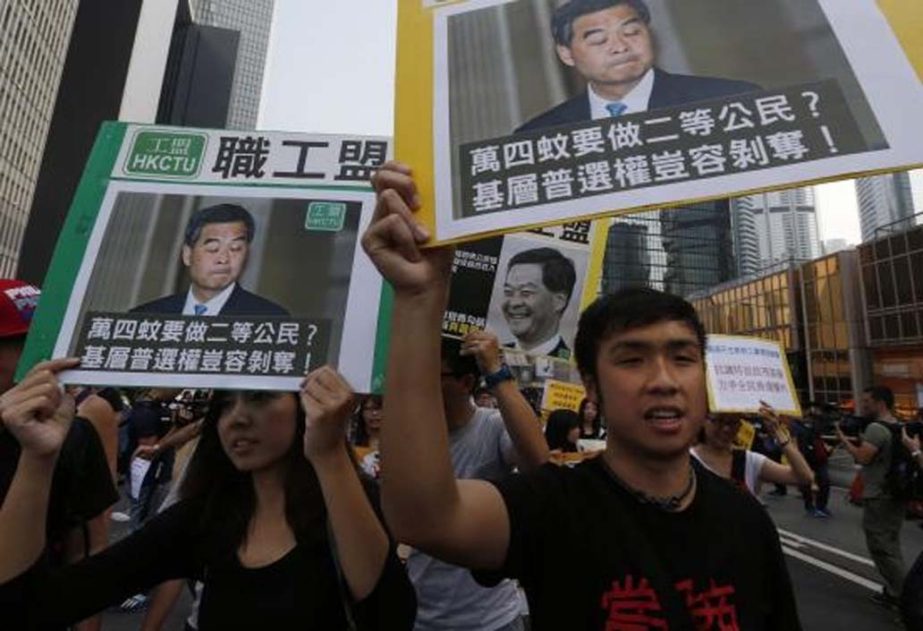
Reuters, Hong Kong :
About 200 Hong Kong protesters marched to the home of the city’s Beijing-backed leader on Wednesday to push their case for greater democracy a day after talks between student leaders and senior officials failed to break the deadlock.
Others continued to occupy main streets in the Chinese-controlled city, where they have camped for nearly a month in protest against a central government plan that would give Hong Kong people the chance to vote for their own leader in 2017 but tightly restrict the candidates to Beijing loyalists.
A wide chasm separates the protesters and the government, which has labelled their actions illegal and repeatedly said their demand for open nominations is impossible under the laws of the former British colony.
“I’m here hoping the government will listen. If they don’t listen we will come out again and again to fight for our basic, grassroots nomination right,” said protester Wing Chan, who took part in the march.
Expectations had been low for a breakthrough in Tuesday’s cordial, televised talks which pitted five of the city’s most senior officials against five tenacious but poised student leaders wearing black T-shirts.
Protesters were unhappy about what they felt was a lack of substantive concessions. Andy Lau, a 19-year-old college student, said now was the time to step things up.
“I think it is time to seriously consider escalating the movement, such as expanding our occupation to many more places to pressure the government to really face and answer our demands,” he said.
Demonstrators marching to the home the city’s leader, Leung Chun-ying, repeated calls for him to step down. Many were angry at remarks he made this week that more representative democracy was unacceptable in part because it would result in poorer people having more say in politics.
Hong Kong returned from British to Chinese rule in 1997 under a “one country, two systems” formula that allows it wide-ranging autonomy and freedoms and specifies universal suffrage as an ultimate goal. But Beijing is wary about copycat demands for reform on the mainland eroding the Communist Party’s power.

